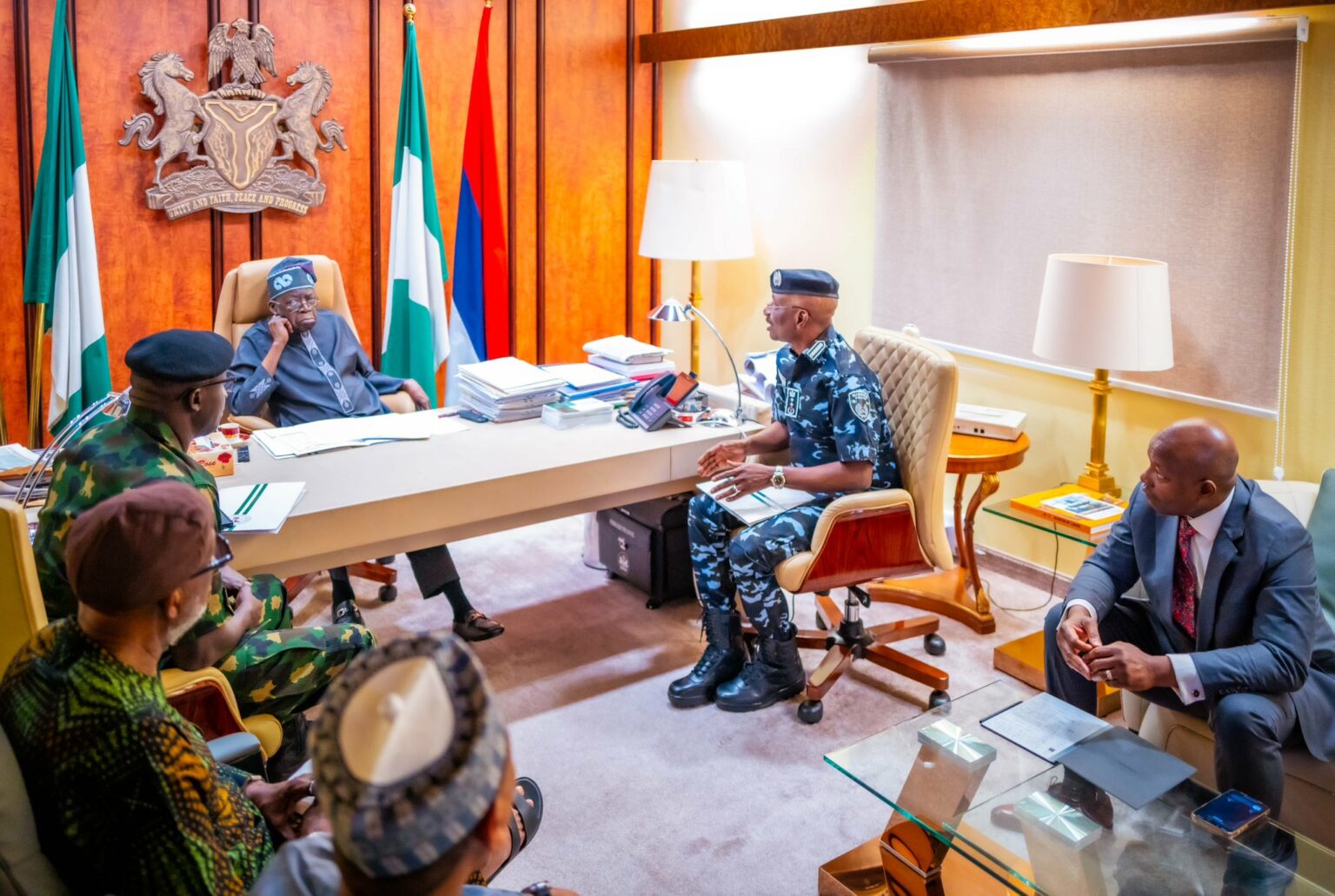
Nigeria’s security landscape took a dramatic turn this week with the launch of what analysts are calling the most far-reaching policing reform in recent history — the Police VIP Withdrawal 2025 directive. President Bola Ahmed Tinubu has ordered that no fewer than 100,000 police officers attached to politicians and Very Important Persons be immediately withdrawn and redeployed to core policing operations across the country.
The order, issued during a high-level security meeting in Abuja, marks the beginning of a sweeping restructuring designed to confront rising terrorism, mass abductions, and coordinated attacks that have overwhelmed communities across the North. The move comes as public pressure mounts over dwindling police presence in rural areas, despite the Nigeria Police Force having over 371,000 personnel on paper.
Presidential spokesperson Bayo Onanuga disclosed that officers shielding VIPs will now be replaced with Nigeria Security and Civil Defence Corps operatives, freeing police manpower for counter-insurgency missions, community policing, and intelligence operations. For years, civil society groups, newspaper editorials, and security analysts have argued that Nigeria’s policing deficits are worsened by the diversion of personnel to political office holders — a challenge the new Police VIP Withdrawal 2025 initiative seeks to reverse.
Reports from multiple international and local platforms, including EU security assessments and ongoing investigations published by national newspapers, show that remote communities often operate with just a handful of police officers. Some divisions reportedly have fewer than 25 functional personnel despite serving tens of thousands of residents.
These gaps became even more glaring following the recent mass abductions in Kebbi, Niger, Zamfara, and Kwara states — attacks that exposed weak response time and inadequate patrol strength.
The President’s directive coincides with mounting controversy over the withdrawal of soldiers guarding St. Mary Private Primary and Secondary Schools in Papiri, Niger State — barely minutes before armed attackers stormed the school, abducting over 300 pupils and staff.
The governor of Kebbi State, Nasir Idris, demanded explanations after intelligence reports suggested that troops left around 3:00 a.m., with the attackers invading less than 45 minutes later. Community leaders confirmed that military presence was visible around midnight but inexplicably disappeared before the bandits struck.
The Defence Headquarters has now launched a full review of the troop movements, promising corrective measures if any lapses are discovered.
Amid national outrage, the Theatre Commander of Operation Fansan Yamma, Maj. Gen. Warrah Idris, ordered troops to escalate rescue operations. Commanders on the ground reported that the armed group responsible for the abductions is “feeling the heat” of the ongoing offensive.
Meanwhile, community leaders in Papiri expressed renewed hope after senior military officers visited the affected area, describing their presence as “reassuring in a time of fear.”
In a drastic move to protect students, the Kebbi State Government ordered the immediate closure of all public and private secondary schools. Hundreds of institutions across 21 LGAs have now halted academic activities, creating one of the most sweeping shutdowns in the state’s history.
Security experts warn that continuous school closures could embolden criminal groups and further endanger the future of millions of children. Former military officials stress the need for a more balanced approach that includes security reinforcement, community policing, and grassroots intelligence networks.
Amid the chaos, glimmers of hope emerged as 50 pupils abducted in Niger State managed to escape between Friday and Saturday and have been reunited with their families. However, 253 students and 12 staff members remain in captivity, heightening calls for urgent government action.
In Kwara State, 38 kidnapped worshippers from Christ Apostolic Church, Eruku, have regained their freedom following a sustained joint operation involving the Army, DSS, Police, SWAT, anti-kidnapping units, and local vigilantes. The rescue reportedly benefited from direct intervention by President Tinubu, who cancelled his G20 Summit trip to oversee national security operations.
From Pope Leo XIV to the All Progressives Congress leadership, reactions are pouring in.
The Pope described the abductions as a source of “immense sadness,” appealing for immediate release of all victims.
The APC, meanwhile, warned that recent coordinated attacks appear “organised and choreographed” by fifth columnists intent on creating national chaos ahead of the 2027 elections.
Across several northern states, political leaders fear internal sabotage within the security architecture, urging the President and NSA Nuhu Ribadu to identify and prosecute collaborators undermining rescue operations.
As Nigeria enters a decisive phase of restructuring through the Police VIP Withdrawal 2025 directive, the coming weeks may determine whether redeployed officers, new recruits, expanded community policing, and intensified military operations can finally reverse the tide of insecurity. For millions of Nigerians, especially in rural areas, this may be the last chance to restore trust in security institutions before the 2027 elections.